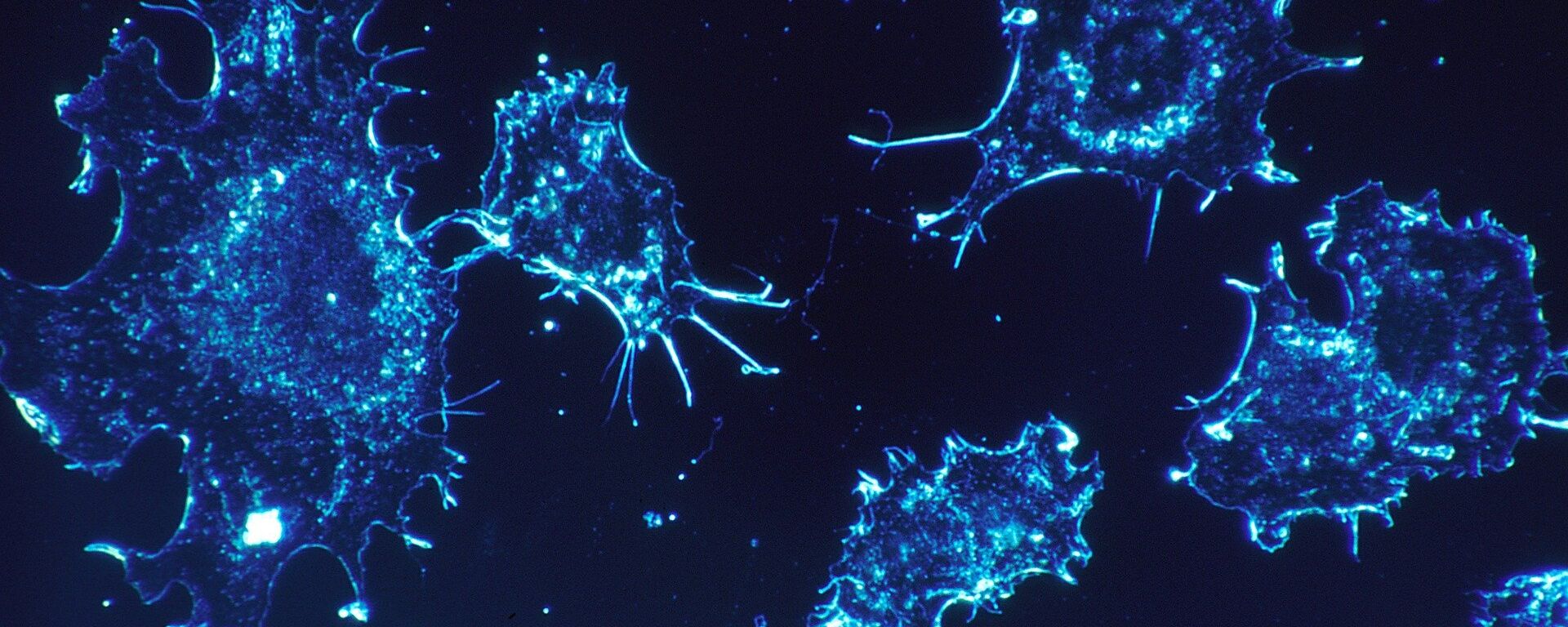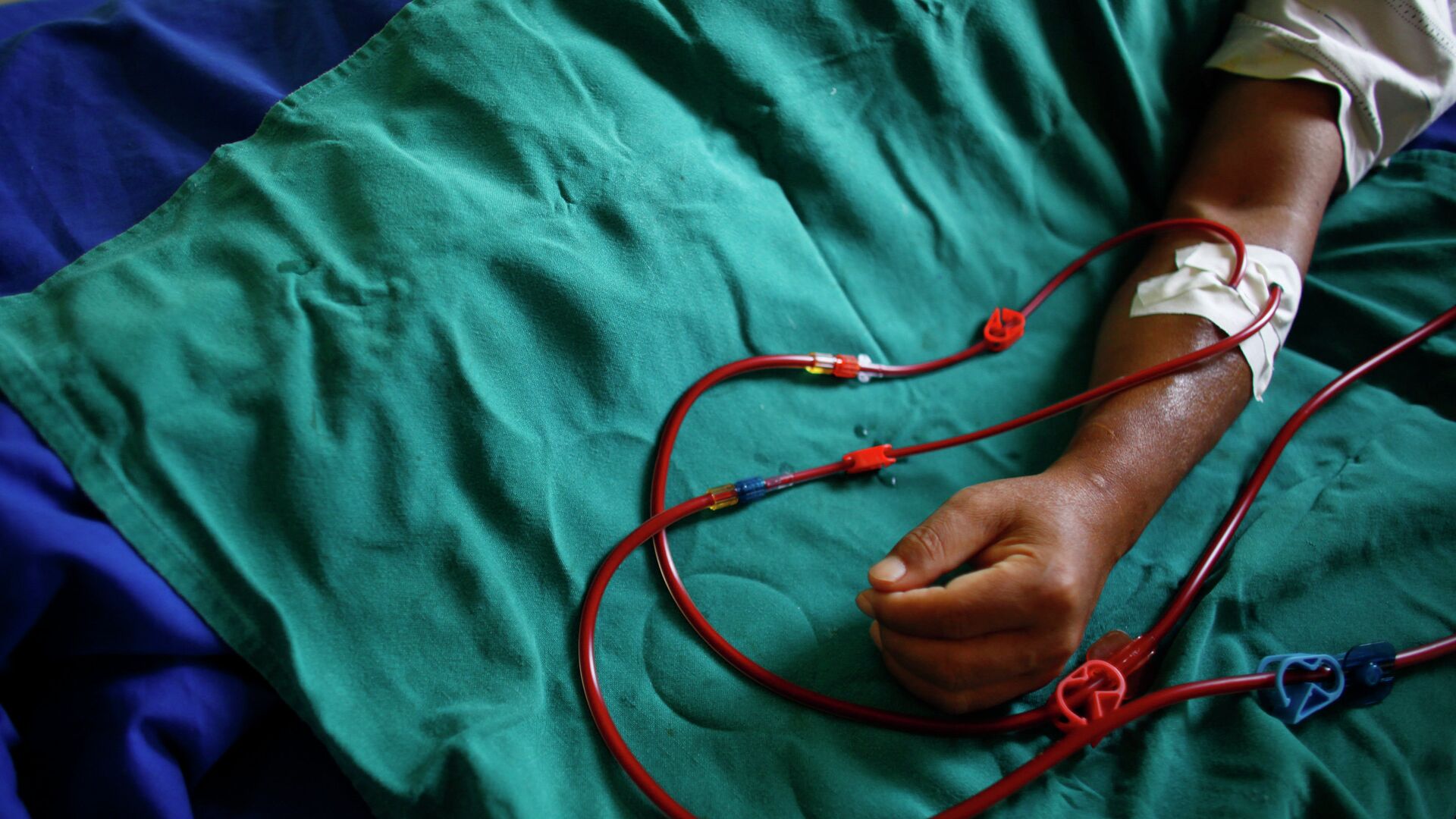https://sputnikglobe.com/20230829/us-scientists-make-kidney-bioreactor-as-alternative-to-dialysis-transplant-1112972947.html
US Scientists Make Kidney ‘Bioreactor’ as Alternative to Dialysis, Transplant
US Scientists Make Kidney ‘Bioreactor’ as Alternative to Dialysis, Transplant
Sputnik International
A group of scientists at the University of California San Francisco (UCSF) are developing a kidney cell bioreactor that could replace the need for dialysis or transplants in patients experiencing kidney failure.
2023-08-29T20:10+0000
2023-08-29T20:10+0000
2023-08-29T20:09+0000
beyond politics
kidney
kidney disease
science & tech
university of california san francisco (ucsf)
us food and drug administration
https://cdn1.img.sputnikglobe.com/img/101330/43/1013304377_0:167:3001:1855_1920x0_80_0_0_da3baec22ce2d381aa7f75e3ba838161.jpg
[The scientists] have shown for the first time that kidney cells, housed in an implantable device called a bioreactor, can survive inside the body of a pig and mimic several important kidney functions,” UCSF said in a statement.The new approach could one day allow doctors to treat kidney failure without patients needing dialysis or to suppress their immune systems for transplants, the statement said.Officials detailed in the release that the bioreactor works in the background like a pacemaker for the heart, and that the device also avoids triggering the patient’s immune system. Scientists plan to eventually include different kidney cells with different functions in the bioreactor then pair it with a device that filters waste from blood.The research is led by The Kidney Project – a national research project focused on developing a bioartificial kidney, which would make treatment for kidney disease more effective and comfortable, the statement said.Next steps in the research will see officials proceed to monthlong trials in animals, as required by the US Food and Drug Administration.
https://sputnikglobe.com/20221123/new-method-of-treating-kidney-cancer-discovered-by-scientists-1104610615.html
Sputnik International
feedback@sputniknews.com
+74956456601
MIA „Rossiya Segodnya“
2023
Sputnik International
feedback@sputniknews.com
+74956456601
MIA „Rossiya Segodnya“
News
en_EN
Sputnik International
feedback@sputniknews.com
+74956456601
MIA „Rossiya Segodnya“
Sputnik International
feedback@sputniknews.com
+74956456601
MIA „Rossiya Segodnya“
university of california san francisco, kidney bioreactor, dialysis, kidney transplant, kidney failure
university of california san francisco, kidney bioreactor, dialysis, kidney transplant, kidney failure
US Scientists Make Kidney ‘Bioreactor’ as Alternative to Dialysis, Transplant
WASHINGTON (Sputnik) - A group of scientists at the University of California San Francisco (UCSF) are developing a kidney cell bioreactor that could replace the need for dialysis or transplants in patients experiencing kidney failure, UCSF said on Tuesday.
[The scientists] have shown for the first time that kidney cells, housed in an implantable device called a bioreactor, can survive inside the body of a pig and mimic several important kidney functions,” UCSF said in a statement.
The new approach could one day allow doctors to treat kidney failure without patients needing dialysis or to suppress their immune systems for transplants, the statement said.
Officials detailed in the release that the bioreactor works in the background like a pacemaker for the heart, and that the device also avoids triggering the patient’s immune system. Scientists plan to eventually include different kidney cells with different functions in the bioreactor then pair it with a device that filters waste from blood.

23 November 2022, 18:58 GMT
The research is led by The Kidney Project – a national research project focused on developing a bioartificial kidney, which would make treatment for kidney disease more effective and comfortable, the statement said.
Next steps in the research will see officials proceed to monthlong trials in animals, as required by the US Food and Drug Administration.



